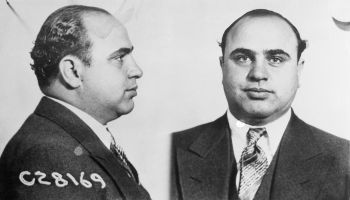VIA MYFOXDC:
WASHINGTON, D.C. – This past summer, Metropolitan Police Officer Michael Jones received a call for a “disorderly” on Blaine Street, NE.
“I said, ‘Dispatcher, this seems like a domestic,’” which under protocol would require a second unit Jones says. He says he told the dispatcher, “’You need to start me another unit that way to assist me.’”
As he waited, Jones, known as Officer 602, says he was told one of the men inside the Blaine Street home was wanted. He radioed the dispatcher again to do a background check, which can be heard on a recording obtained by Fox 5.
OFFICER 602: “I got a name and date of birth I need you to run for me.”
The dispatcher ignores Jones and instead takes a call from another officer on a traffic stop.
OFFICER 602: “Crime patrol 602. Did you return for me yet?”
DISPATCHER: “Crime patrol 601. Go with your info.”
Two critical minutes pass. “I was feeling kind of brushed off,” says Jones.
OFFICER 602: “Can you advise me that you can return the WALES or not yet please?”
DISPATCHER: “Can you standby while I check the returns?”
The dispatcher finally confirms the suspect is a 10-30, police code for “he’s wanted.”
DISPATCHER: “I’m getting a 10-30 on this subject.”
Jones says the dispatcher, “never tells me what the warrants are for.”
OFFICER 602: “For officer safety, I need to know before we make entry into the house.”
Jones says the man inside was wanted for second-degree murder in Prince George’s County, something Jones and the officers who came to the scene didn’t learn until the suspect was in custody. “It was after we put the cuffs on him that he realized what was going on that he started going berserk,” says Jones.
Police officers tell Fox 5 there have been times when suspects got away after dispatcher errors.
Back in September, MPD Officer Hiram Rosario found himself chasing a wanted man near 4th Street SE. “We lost him in the wooded area,” Rosario says.
He wanted to call in the K-9 Unit to help search, but Rosario explains the rules say you can only get a dog when someone is wanted for a felony.
The dispatcher told Rosario the man was wanted for a misdemeanor.
“We canvassed the area and we couldn’t find him,” Rosario says. “We left.”
But when he returned to the police station, Rosario says he did his own background check at the police station and discovered the dispatcher never told him the suspect was also wanted for selling cocaine– a felony.
“Had we known about the felony bench warrant we could have utilized canines,” says Rosario.
Coming forward on camera, without permission, is an unusual and potentially risky move. But these officers say they’re frustrate the District continues to ignore problems exposed by Fox 5 with DC’s 911 system.
“The phone system may go down at any day, any time.”
In May, we heard from workers, like Sabrina Richardson, complaining about equipment and training.
“You get a bad address and then you get there late and as you know in our profession, every second counts.”
In July, fire fighters and police accused dispatchers of missing important calls and giving out wrong addresses.
“This is a systemic problem within the Office of Unified Communications,” says Fraternal Order of Police spokesman Kris Baumann. “That means it’s a management problem and there are hard questions that need to be answered about what is going on there.”
Office of Unified Communication Director Janice Quintana runs the 911 system. Fox 5 has tried for six months to get her to talk to us about the claims against her agency, visiting her office, her home and finally catching up with her outside a pharmacy.
“Ms. Quintana, its Tisha Thompson with Fox 5. We want to talk to you about the complaints we’re getting from the police officers.”
Quintana didn’t respond and walked briskly to her car.
“We’ve emailed you. We’ve called you. We’ve talked to the Mayor’s office. You keep running away. The FOP says you’re hiding something. Are you something?”
Quintana finally responds. “I’m not hiding and I don’t want to get into a discussion between them and us.”
Baumann says, “That director is being paid tax dollars. She should walk forward and be able to explain what is going on and if mistakes were made, fix those mistakes. That is what we’re asking for.”
Baumann says the FOP has filed complaints with OUC, including the incidents with officers Jones and Rosario. The documents say the dispatchers failed to provide officers with “pertinent information” and did not “read all of the notes associated with calls for service.”
“I cannot wait for one of my fellow officer or myself to get hurt or killed in the line of duty,” says Rosario.
“I understand it’s real busy there,” says Jones. But he, Rosario and other officers say until things change, they don’t feel they can completely rely on some dispatchers. “Now, I may stop around the corner to read through the notes to make sure the information I’m getting is correct.”
Taking precious seconds the next time you call 911 for an emergency.
- Sudan: Entertainment, Food, Languages, Places To Visit + More
- Tunisia: Entertainment, Food, Languages, Places To Visit + More
- Morocco: Entertainment, Food, Languages, Places To Visit + More
- Libya: Entertainment, Food, Languages, Places To Visit + More
- Algeria: Entertainment, Food, Languages, Places To Visit + More















